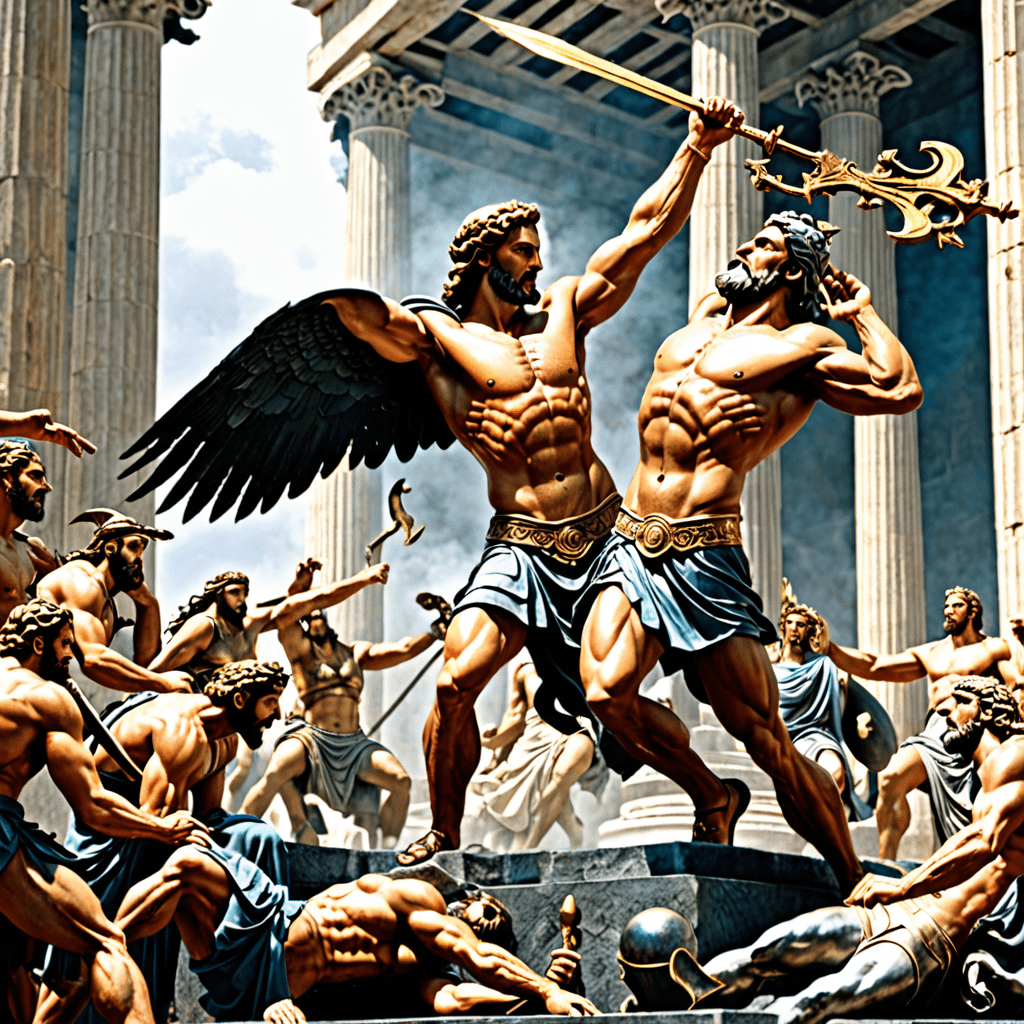Divine Retribution: When Mortals Face the Consequences
I. Introduction to Divine Retribution
Divine retribution refers to the concept that a higher power, often associated with God or gods, administers punishment for wrongdoing or moral failing. This notion is prevalent in many religious traditions and suggests that moral actions have consequences beyond earthly life.
Historically, divine retribution has been a means to ensure social order, instilling a sense of accountability among individuals. Cultures across the globe have integrated this principle into their belief systems, using it to explain suffering and injustice.
This article aims to explore the multifaceted concept of divine retribution, examining its roots in religious texts, its psychological implications, historical examples, modern interpretations, and its portrayal in literature and art.
II. The Concept of Justice in Religious Texts
The theme of divine justice is a cornerstone in several major religions:
- Christianity: The Bible contains numerous instances of divine retribution, particularly in the Old Testament, where God punishes the Israelites for their disobedience.
- Islam: The Quran emphasizes that God is just and that those who stray from His path will face consequences, both in this life and the afterlife.
- Hinduism: The concept of karma illustrates the belief that good or bad deeds will result in corresponding consequences in this life or future reincarnations.
Case studies from sacred texts often illustrate the outcomes of divine retribution. For example, in the story of Sodom and Gomorrah, the cities are destroyed as a punishment for their sins, serving as a powerful warning to others.
The moral implications of divine justice raise questions about the nature of good and evil, the fairness of punishment, and the hope for redemption.
III. The Psychological Impact of Belief in Divine Retribution
Belief in divine consequences can significantly influence human behavior. Individuals who believe in divine retribution may be more motivated to adhere to moral standards, fearing the repercussions of their actions.
Guilt and fear often play a crucial role in moral decision-making. The thought of divine punishment can deter individuals from committing unethical acts, while the promise of divine reward may encourage them to act virtuously.
Additionally, faith in retribution can provide psychological benefits, such as:
- A sense of justice in an unjust world.
- Comfort in the face of personal tragedy or suffering.
- A framework for understanding life events through a moral lens.
IV. Historical Examples of Divine Retribution
Throughout history, many events have been interpreted as acts of divine retribution. Examples include:
- Natural Disasters: Earthquakes, floods, and other calamities have often been viewed as a punishment for societal sins.
- Wars: Conflicts may be seen as a consequence of moral failures, with various sides claiming divine justification.
- Plagues: Historical pandemics have been interpreted as divine punishment, leading to societal panic and a quest for atonement.
Societal responses to perceived divine punishment include rituals, repentance, and efforts to reform behaviors, illustrating the deep-seated belief in divine justice.
V. Modern Interpretations of Divine Retribution
In contemporary society, the understanding of divine retribution has shifted. Secularism has influenced beliefs about divine punishment, leading many to seek natural explanations for suffering rather than attributing it to divine will.
Social media and public opinion play significant roles in shaping modern interpretations. Online platforms foster discussions about morality, justice, and the implications of divine retribution, often leading to diverse viewpoints.
As society becomes more interconnected, interpretations of divine retribution are increasingly influenced by cultural exchange and dialogue.
VI. Divine Retribution in Literature and Arts
The themes of divine retribution resonate strongly in literature and the arts. Classic works often explore the consequences of moral failings:
- Greek Tragedies: Many plays illustrate the idea of hubris leading to downfall, emphasizing the inevitability of divine retribution.
- Shakespeare: Works like “Hamlet” and “Macbeth” delve into themes of guilt and the consequences of immoral actions.
Modern representations in films, novels, and visual arts continue to explore these themes, using symbolism and allegory to depict the complex relationship between morality and divine justice.
VII. Moral Dilemmas Surrounding Divine Retribution
The belief in divine retribution raises several ethical considerations:
- Punishment vs. Forgiveness: The tension between the need for justice and the call for compassion presents moral dilemmas.
- The Problem of Suffering: The existence of innocent victims challenges the fairness of divine retribution.
- Arguments For and Against: Proponents argue that divine retribution ensures justice, while critics contend it can lead to a punitive worldview.
VIII. The Role of Religious Leaders and Institutions
Religious leaders play a crucial role in interpreting and communicating the concept of divine retribution. Their teachings can significantly impact followers’ beliefs and practices.
Institutional teachings often emphasize the importance of accountability and moral living, shaping community values and actions. Case studies of religious movements highlight how certain groups may focus on divine retribution as a central tenet of faith.
IX. Personal Testimonies and Experiences
Anecdotal evidence from individuals who believe they have faced divine retribution can provide insight into the personal impact of this belief. Such testimonies often reflect a transformative experience, reinforcing faith and moral values.
These narratives shape community beliefs and can strengthen bonds among individuals who share similar experiences, fostering a collective understanding of divine justice.
X. Conclusion: The Future of Divine Retribution Beliefs
In summary, the concept of divine retribution is complex and multifaceted, deeply rooted in history and culture. As society evolves, so too does the understanding of justice and morality.
While belief in divine retribution may face challenges from secular ideologies, its psychological, social, and cultural significance remains profound. The future of these beliefs will likely continue to be shaped by ongoing dialogues within religious communities and the broader society.



